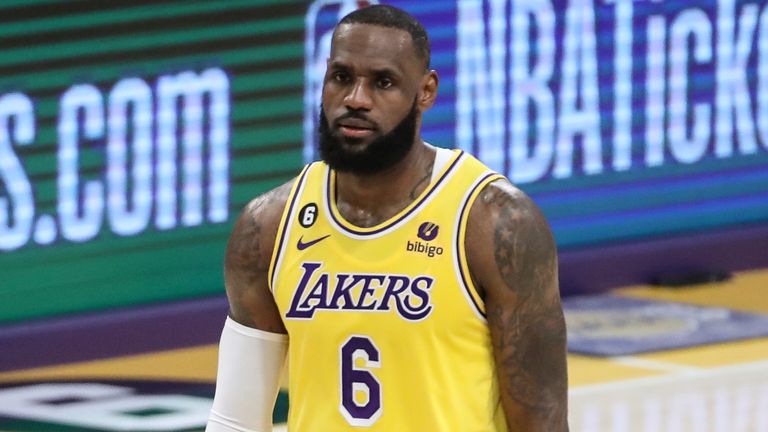The NBA begins its 78th season tonight. It will be the 21st season for LeBron James. He will open the season with its 1st regular-season game, as his Los Angeles Lakers travel to play the defending Champions, the team that knocked the Lakers out of last season's Playoffs, the Denver Nuggets.
In the game in which the Lakers bowed out of the 2023 Playoffs, James, age 38, played 47 minutes and 56 seconds out of the available 48 minutes. That sounds like another piece of evidence of the greatness of LeBron James the player.
It is not. There are other things that can do that. It is an indictment of LeBron James the head coach and the general manager.
And let's not kid ourselves: Regardless of Darvin Ham and Rob Pelinka holding the actual positions, LeBron James is the head coach and the general manager of the Los Angeles Lakers. He led this team, and he put it together.
He is no more qualified to do either job than was Michael Jordan, than was Magic Johnson, than was Larry Bird, than was Willie Reed, than was Bill Russell, than was Bob Cousy. Those men won nothing without themselves on the court. (Cousy, the first of these, infamously made his team even worse in his brief comeback with the 1969-70 Cincinnati Royals.) Yes, I put Jordan in the past tense, because the Charlotte Hornets ain't never gonna do nothin' with him in charge. These men couldn't coach, and they couldn't build teams.
You might think that Jerry West is the exception. As a GM, he was, the 2nd-greatest in the history of the sport behind Red Auerbach. But not as a head coach, where he did a lousy job. Among coaches, the exception is Bill Sharman, one of Auerbach's early Celtic stars, who coached West to his only title as a player in 1972.
But even that was more than half a century ago. Both the job of an NBA head coach and the job of an NBA GM have changed tremendously since then. Magic's brief tenure as coach of the Lakers was in 1994. Bird was last coach in 2000, and last a GM in 2017, in both cases not with the team for whom he played, the Boston Celtics, but with his home-State team, the Indiana Pacers. And he may have left the front office because he realized how much the game had changed, and rendered the business of basketball that he once understood obsolete.
Note my choice of words: The way the game is played hasn't changed that much, but the business of it has, a lot.
Let this be a lesson to Steph Curry, in case he's thinking about trying it. Before Curry, Sharman and West were the 2 greatest shooters in NBA history. I'm not including Wilt Chamberlain in this discussion: He had just 1 season as a coach, and it was in the ABA, and he did get them into the Playoffs. Then he lost interest in coaching, and quit. So we don't have a reliable sample on him.
The best head coaches have included mediocre players, like Auerbach, Jack Ramsay, Pat Riley, Chuck Daly, Phil Jackson, Gregg Popovich and Larry Brown; and even some very good ones, like Red Holzman, Tom Heinsohn, Lenny Wilkens, K.C. Jones, Rudy Tomjanovich and Steve Kerr. But not great players.
LeBron has proven, thus far, to not be an exception. And he is smart enough to figure that out. But his stubbornness, which has served him so well as a player, may be blinding him to this essential truth.
LeBron has changed the sport in many ways. He has made the NBA the ultimate players' league: The players there have much more power than in MLB, and exponentially more than in the NFL and the NHL, where the players' unions have been tamed by the team owners.
But, like Magic and Jordan before him, LeBron wants to be the team owner. That isn't going to happen as long as Jeanie Buss and her family own the Lakers. LeBron can be said to be, as West and Magic were before him, the operator of the Lakers, which might be better: It's not his own money he has to put up.
But he's not the right choice. He knows basketball. What he doesn't seem to know -- it was Dwyane Wade who put together the 2010-14 Miami Heat superteam -- is chemistry. Or, more accurately, the chemistry between people, which is part of psychology.
And this is one way in which going straight from high school to the NBA, skipping college and the coursework it offers, has served him very poorly. In many ways, it's worked out for him. But not in this way.


No comments:
Post a Comment